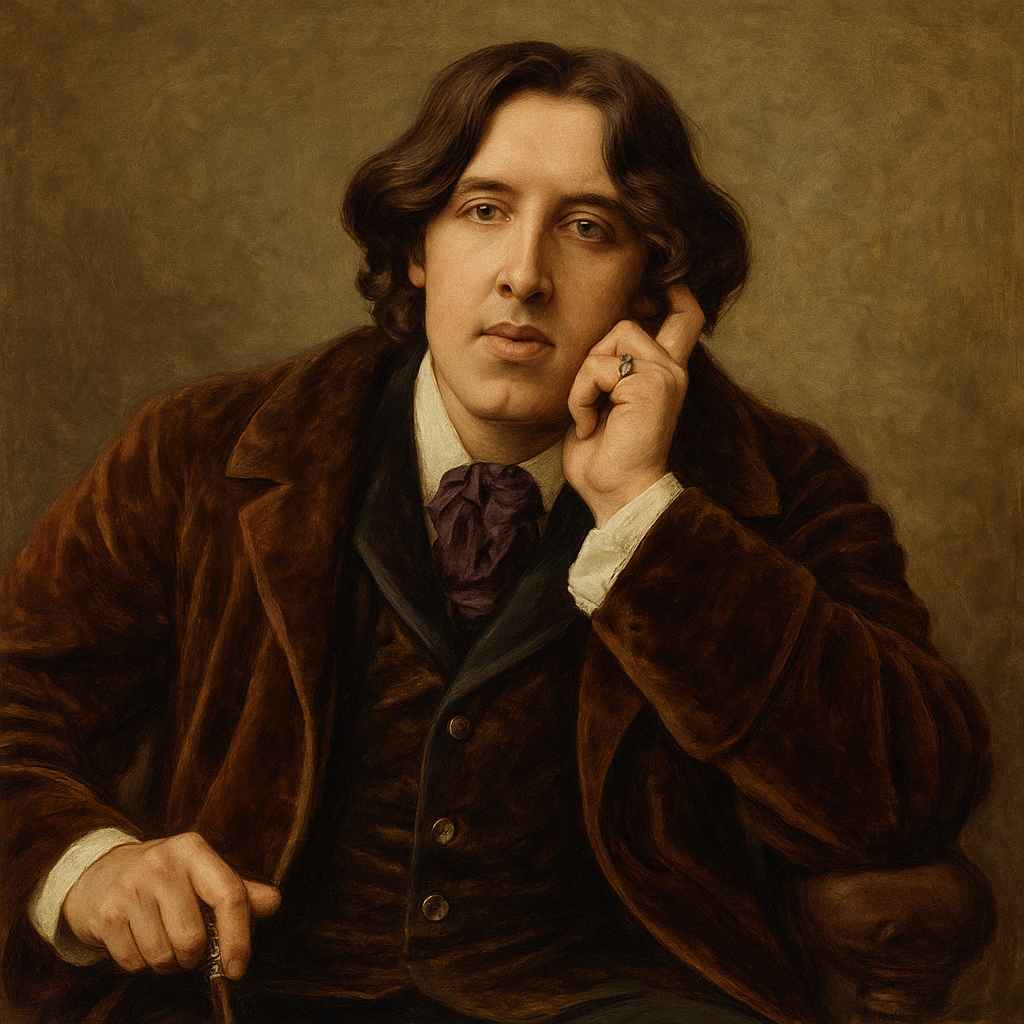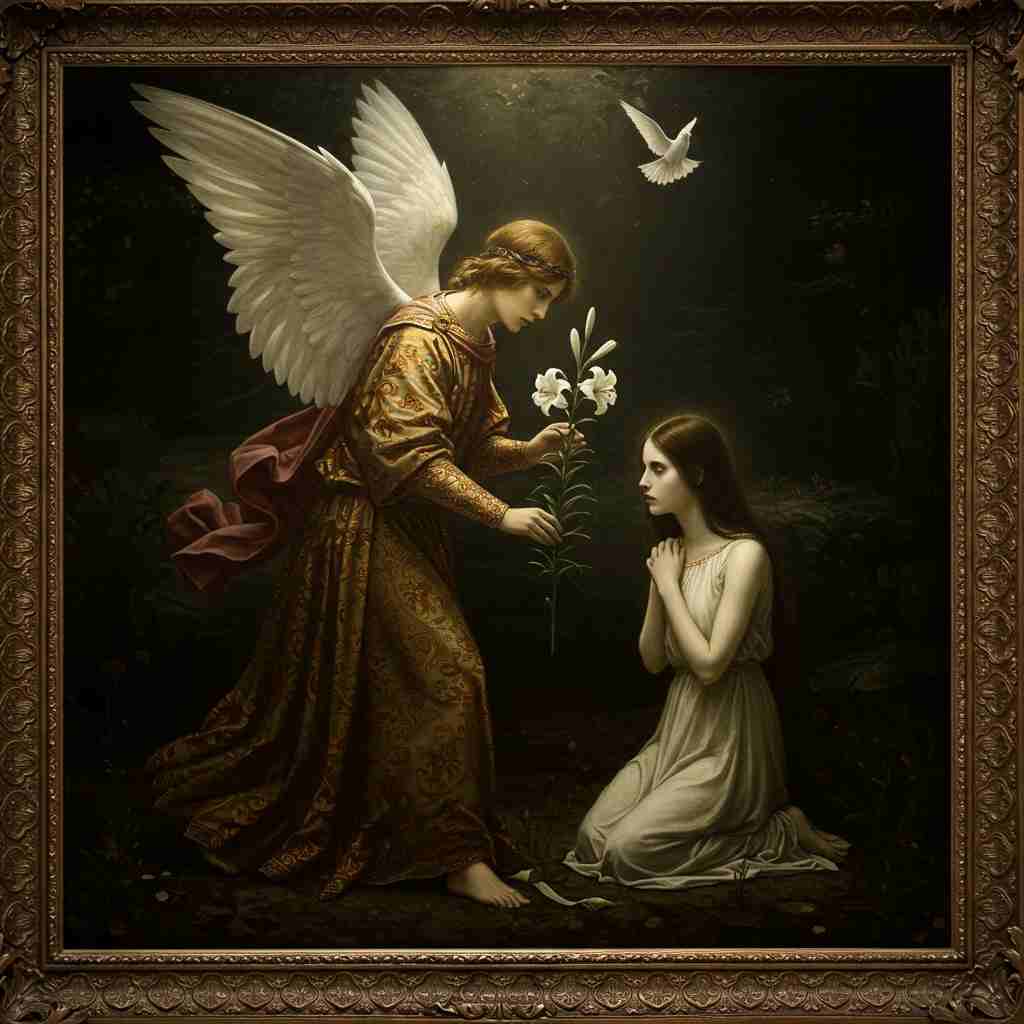4 Poems by Oscar Wilde
1854 - 1900
Oscar Wilde Biography
Oscar Wilde, born Oscar Fingal O'Flahertie Wills Wilde on October 16, 1854, in Dublin, Ireland, was a literary figure whose life and work continue to captivate readers and scholars more than a century after his death. The son of Sir William Wilde, a prominent eye and ear surgeon, and Jane Francesca Elgee, a poet and Irish nationalist, Wilde was destined for a life steeped in intellect and creativity from the outset.
Wilde's early education at Portora Royal School in Enniskillen, County Fermanagh, laid the foundation for his academic brilliance. He excelled in his studies, particularly in the classics, and won the school's prize for the top classics student in each of his last two years. This early success foreshadowed his later achievements at Trinity College, Dublin, where he studied from 1871 to 1874. At Trinity, Wilde distinguished himself as a first-class student, winning the Berkeley Gold Medal for Greek and earning a scholarship to Magdalen College, Oxford.
At Oxford, Wilde's intellectual and artistic sensibilities flourished. He became involved with the Aesthetic movement, which emphasized "art for art's sake" and rejected the idea that art should serve moral or political purposes. This philosophy would profoundly influence his later works and lifestyle. During his time at Oxford, Wilde also came under the influence of John Ruskin and Walter Pater, whose teachings on art and beauty would shape his aesthetic ideals.
After graduating from Oxford in 1878, Wilde moved to London, where he quickly became a central figure in fashionable social circles. His wit, flamboyant dress, and unconventional behavior made him both a celebrated and controversial figure. It was during this period that he began to establish himself as a writer, publishing his first collection of poems in 1881. Although the volume received mixed reviews, it marked the beginning of Wilde's literary career.
In 1882, Wilde embarked on a lecture tour of North America, delivering talks on aestheticism and the decorative arts. This tour not only increased his fame but also provided material for his social satires, as he observed and critiqued American society. Upon his return to Europe, Wilde's literary output increased significantly. He wrote fairy tales, essays, and his only novel, "The Picture of Dorian Gray," published in 1890. This novel, with its exploration of hedonism, influence, and the nature of art, remains one of his most famous and debated works.
Wilde's true genius, however, found its fullest expression in his plays. Beginning with "Lady Windermere's Fan" in 1892, he produced a series of witty, satirical comedies that took London by storm. "A Woman of No Importance" (1893), "An Ideal Husband" (1895), and his masterpiece, "The Importance of Being Earnest" (1895), showcased his brilliant dialogue, clever plots, and biting social commentary. These plays cemented Wilde's reputation as one of the greatest dramatists of the Victorian era.
Despite his professional success, Wilde's personal life was marked by controversy and tragedy. In 1884, he married Constance Lloyd, with whom he had two sons. However, Wilde's homosexuality, although hidden from public view, was an open secret in certain circles. His relationship with Lord Alfred Douglas, known as "Bosie," would ultimately lead to his downfall. In 1895, at the height of his fame, Wilde was arrested and tried for "gross indecency" – a euphemism for homosexual acts. The subsequent trials were a sensation, with Wilde's wit and eloquence on full display. Nevertheless, he was found guilty and sentenced to two years of hard labor.
Wilde's imprisonment was a turning point in his life and career. The harsh conditions and isolation took a severe toll on his health and spirit. During this time, he wrote "De Profundis," a long letter to Lord Alfred Douglas, which was published posthumously. This work, part apologia and part literary criticism, reveals a more introspective and somber Wilde, reflecting on his life, art, and the nature of suffering.
Upon his release in 1897, Wilde went into exile in France. Broken in health and spirit, he spent his final years in relative poverty, writing little except for "The Ballad of Reading Gaol," a powerful poem inspired by his prison experiences. He died in Paris on November 30, 1900, at the age of 46, reportedly converting to Catholicism on his deathbed.
Oscar Wilde's legacy is complex and enduring. His works continue to be widely read, performed, and studied. Scholars have explored every facet of his life and art, from his sexuality and its influence on his writing to his place in the canon of English literature. His aphorisms and epigrams remain widely quoted, a testament to his sharp wit and keen observations of society.
In recent decades, there has been a reevaluation of Wilde's life and work in light of changing attitudes towards sexuality and artistic freedom. He has become an icon of the LGBTQ+ community, celebrated for his defiance of Victorian moral codes. His trial and imprisonment are now seen as a shameful example of societal prejudice and legal injustice.
Wilde's influence extends far beyond literature. His ideas on art, beauty, and individualism have inspired generations of artists, writers, and thinkers. His life story has been the subject of numerous biographies, films, and plays, each offering new interpretations of this complex and fascinating figure.
In the end, Oscar Wilde remains a paradoxical figure – a man who celebrated artifice yet strove for authenticity, who mocked society's conventions while desperately seeking its approval, and whose greatest works of comedy were born from a life that ended in tragedy. His story continues to resonate, reminding us of the power of art, the cost of nonconformity, and the enduring human quest for beauty and truth.
This text was generated by AI and is for reference only. Learn more
Username Information
No username is open
Everything is free to use, but donations are always appreciated.
Quick Links
© 2024-2025 R.I.Chalmers (V2Melody).

All music on this site by R.I.Chalmers (V2Melody) is licensed under a Creative Commons Attribution-NonCommercial 4.0 International License.
Attribution Requirement:
When using this music, you must give appropriate credit by including the following statement (or equivalent) wherever the music is used or credited:
"Music by R.I.Chalmers (V2Melody) – https://v2melody.com"
Support My Work:
If you enjoy this music and would like to support future creations, your thanks are always welcome but never required.
Thanks!





